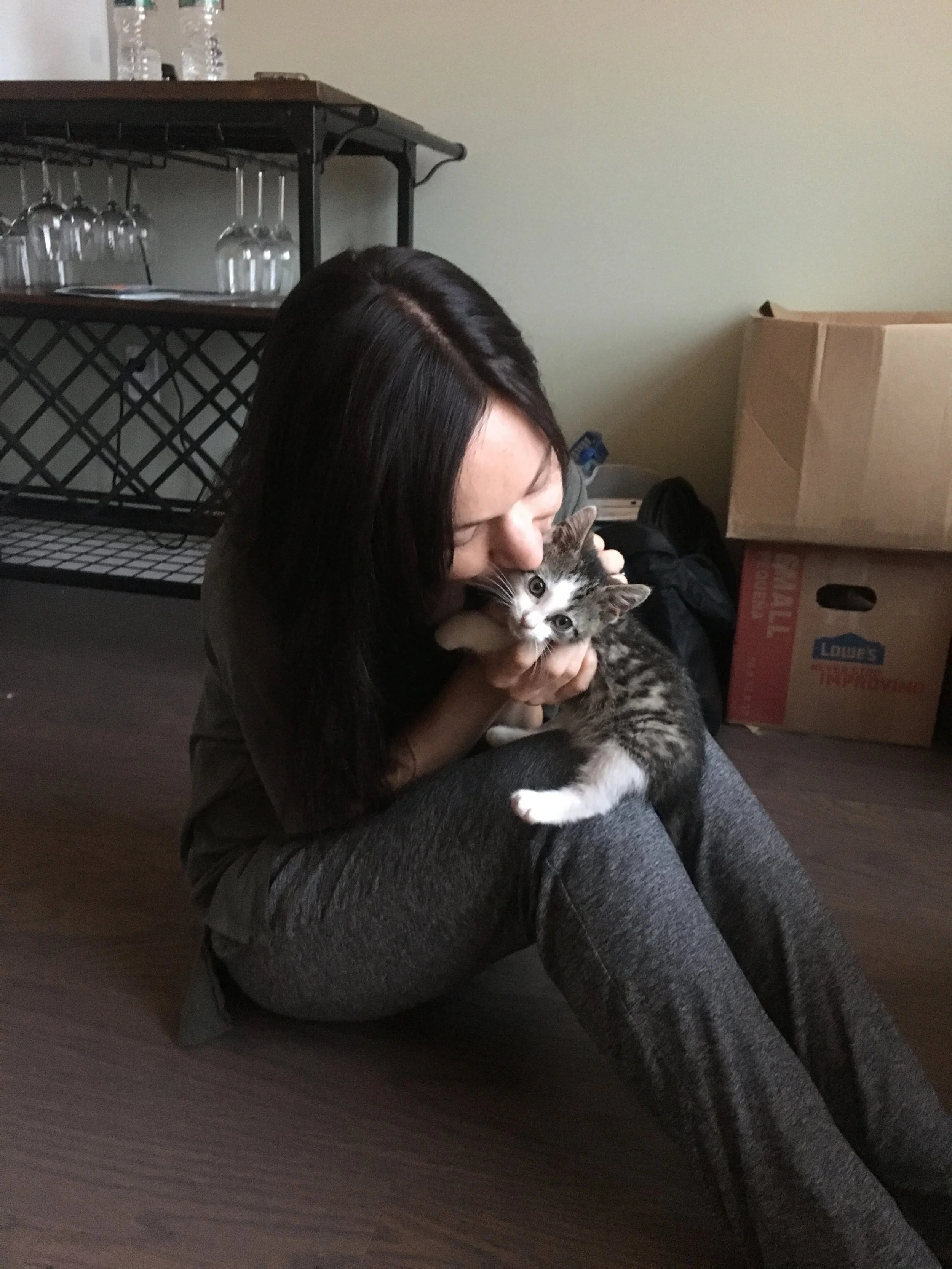I've always wanted to foster animals. What do I need to know before jumping in?
Since posting about my fosters on my blog and Instagram, I've gotten a ton of questions about the process so here's all I know... As an animal lover and animal rights activist, I've always wanted to do all I could to help animals. From fundraising for shelters to writing about veganism, visiting sanctuaries and adopting two cats of my own, fostering kittens is now a passion and a natural fit for my lifestyle. Here are two stories about my current fosters and what I've learned so far.
When I decided to take in my first foster, Belmar, I knew there would be some work involved, but it was a seamless experience with a pretty healthy kitten who just needed a lot of love and affection. With Belmar, I had to give him medicine for an eye infection and a syringe of meds for a cold twice daily, plus feed him three times per day. Besides that, spending time with him was the best medicine since he was a lonely, orphaned kitty. My goal was not only to help make him 100% healthy, but also to try to make him friendly and cuddly in order to lead to adoption. Through my social media channels, I was able to find him a forever home quickly. Belmar never had to stay at the shelter. I loved him and am so happy with his success story.
However, there's a risky side to fostering kittens (or any animal really), that's not often thought about. They can be very sick and potentially not make it. Recently, I had three grey foster kittens from the same litter. I quickly realized that one wasn't doing well and ended up having to take them all back to the LHS for emergency medical care. Turns out they had a deadly virus and were only in my care for three days. It was heartbreaking to find out and not only was I upset about their fate, but I was also extremely nervous about the health of my own cats. I had to throw out everything they used and completely bleach out the room they stayed in. My cats have their shots and there aren't any issues.
Here's what you need to know about fostering animals:
They may not be healthy so you may be responsible for administering medicine to them on a daily and nightly schedule.
Plan on buying their food, litter, and other items needed for their care. Of course most shelters will offer it to you, but taking it upon yourself is a nice way to give back to the nonprofits.
You need to keep your pets separated from your foster animals at all times to keep them safe from any viruses, diseases or aggressiveness (see my story above). I have an extra bedroom, which I easily turned into a foster room. Bathrooms work well, too if you're just fostering kittens.
While you're responsible for the animal, the shelter still owns it and will make any decisions on its behalf.
You'll most likely need to bring it back to the shelter's vet several times during its stay for needed shots, neutering or spaying, etc.
Sharing your experience with your foster pet on social media is encouraged, because it helps to raise awareness about adoption and the shelter you're working with.
Only foster if you have time to dedicate to the animal. Simply feeding it isn't enough. You have to want to spend real time with them so they develop into adoptable pets.
Getting attached is very easy, but remember why you're fostering. By fostering you can help so many more in need. You can't keep all of them!






















